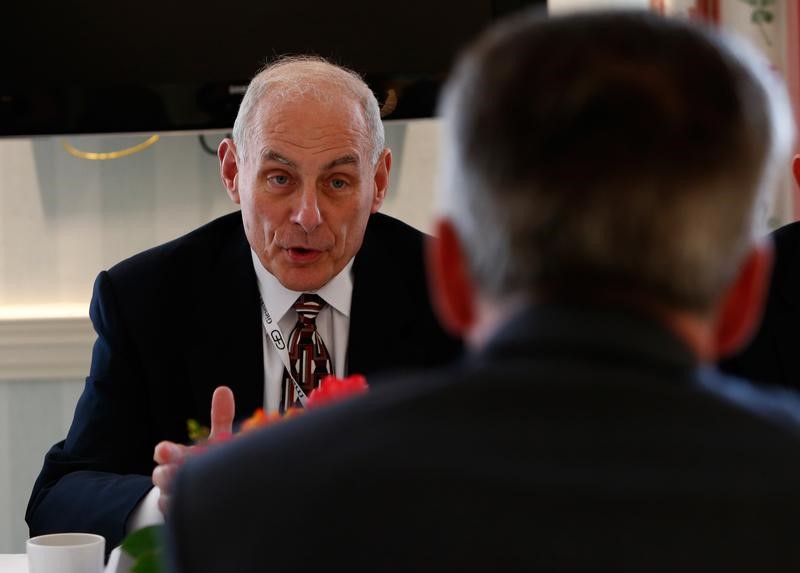WASHINGTON (Reuters) - Senior Cabinet members have lobbied President Donald Trump to remove Iraq from a list of seven Muslim-majority nations included in an initial travel ban, and an administration official said the country likely would not appear on a new executive order expected soon.
Defense Secretary Jim Mattis, national security adviser H.R. McMaster, Secretary of State Rex Tillerson and Homeland Security chief John Kelly all made the case to Trump to remove Iraq because of ongoing U.S. military and civilian operations in the country, according to three U.S. officials who said the Cabinet members made the case separately at recent meetings.
An administration official said the new executive order would likely exclude Iraq. Another U.S. official said the State Department was confident Iraq would not appear, while a congressional aide said Iraq would be removed following conversations among White House advisers on Tuesday.
When asked whether Iraq would be left out of the revised order, the White House said it did not have any announcements on the executive order right now.
A White House official said the order was likely to come on Monday.
Federal courts blocked Trump's Jan. 27 executive order that temporarily barred travelers from Iran, Iraq, Libya, Somalia, Sudan, Syria and Yemen.
Trump has said the travel limitations were necessary to protect the United States from attacks by Islamist militants. Americans were deeply divided over the measure, which had some support but stirred national protests and were condemned by prominent U.S. companies and allies.
There are currently 5,200 American troops deployed in Iraq to assist Iraqi and Kurdish forces in retaking Mosul - the last city in Iraq under the control of Islamic State militants.
Iraqis have fought alongside U.S. troops for years and have worked as translators. Many Iraqis have resettled in the United States following threats over their affiliation with U.S. troops.
The United States also relies on Iraq to provide visas for a substantial contracting force that supports the U.S. military presence.

Iraqi Prime Minister Haider al-Abadi asked Trump to lift the ban on people from his country during their first phone call on Feb. 10, resisting calls from influential pro-Iranian Shi'ite politicians to retaliate against the ban.